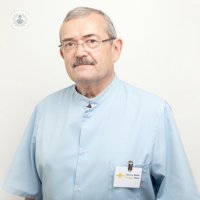Hypertension, Patient's Guide
Written by:Hypertension is one of the main reasons for medical consultation today. There is talk of blood pressure when the pressure is greater than 140/90 mm Hg. It is a very common disease that affects a large percentage of the adult population and that if not treated properly can lead to serious cardiovascular complications. Specialists Cardiology claim that the main burdens of the pathology associated with hypertension do not prevent the relatively few cases of severe illness, but the large population with minimal tension elevations.
How to take your blood pressure?
Measuring blood pressure should be done very carefully to avoid wrongly considered hypertensive normal individuals and to ensure that hypertensive patients receive appropriate treatment. It is imported, for two reasons, to avoid misdiagnosis of hypertension based on a wrong measurement. These reasons are:
- If the diagnosis is established, a treatment that involves an obligation for life and often is expensive, tedious and sometimes dangerous probably indicated.
- The simple diagnosis of hypertension can cause counterproductive effects on mood and disposition of patients.
When taking blood pressure, posture is important that the patient has. The patient should be sitting quietly with his back for 5 minutes and the arm is supported at heart level (supported). In addition, you should not ingest caffeine during the previous hour or smoke during the 15 minutes before.
Variations in blood pressure
Measurements of blood pressure are often variable; either by factors specific to the patient or procedure-related factors.
Variations in patient pressure can be fast, influenced by breathing and nervous system. During the day, they may be determined by the mental stress and physical activity, as well as daily and work activities.
They can also vary during sleep. Normally blood pressure should decrease by 30% during sleep.
High blood pressure usually usually occur in the early hours of the morning, going down during the day.
In short, various blood pressure permanently 24 hours, both in normal and hypertensive; in the latter being greater variation.
Currently, there are methods of diagnosis and control as Holter monitoring blood pressure, consisting of a small portable device that records automatically at scheduled intervals, the patient's blood pressure during 24 hours a day. This allows preventing and / or detecting an unknown blood pressure by the patient.
Treatment for high blood pressure
Hypertension is a chronic disease that is not curable, but it is controlled. Therefore it requires sustained treatment.
In addition to drug treatment because the patient must take into account certain aspects that can help you improve your blood pressure.
- If you overweight, reducing it must be a fundamental objective.
- Limit dietary intake of sodium (salt) to 2 g. a day, taking care not to reduce intake of foods rich in calcium.
- It is not necessary to increase potassium intake.
- Only must provide calcium and magnesium when it has deficiencies.
- Increasing and decreasing fibers saturated fats are beneficial for other reasons and can also contribute to decreased blood pressure.
Edited by Noelia García Pino



